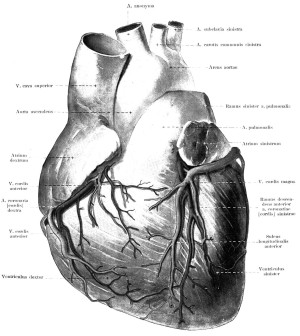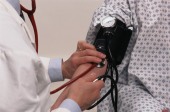- The Best Time of Day to Drink Bone Broth to Maximize Health Benefits
- 8 Ways to Increase Dopamine Naturally
- 7 Best Breads for Maintaining Stable Blood Sugar
- Gelatin vs. Collagen: Which is Best for Skin, Nails, and Joints?
- The Long-Term Effects of Daily Turmeric Supplements on Liver Health
- Could Your Grocery Store Meat Be Causing Recurring UTIs?
- Are You Making This Expensive Thermostat Error This Winter?
- Recognizing the Signs of Hypothyroidism
- 10 Strategies to Overcome Insomnia
- Could Artificial Sweeteners Be Aging the Brain Faster?
New Blood Pressure Guidelines May Take Millions of Americans Off Meds


About 5.8 million American adults may no longer be prescribed drugs to treat high blood pressure under recently revised guidelines, according to a new study.
In February, the Eighth Joint National Committee released controversial guidelines that relaxed blood pressure goals in adults 60 and older from 140/90 to 150/90. The guidelines also eased blood pressure targets for adults with diabetes and kidney disease.
In this study, researchers used blood pressure data collected from more than 16,000 Americans between 2005 and 2010 to assess the impact of the revised guidelines.
The proportion of adults considered eligible for medication to treat high blood pressure would fall from about 41 percent to 32 percent, the authors concluded in the study published online March 29 in the Journal of the American Medical Association and presented Saturday at the American College of Cardiology annual meeting in Washington, D.C.
The researchers also said that 13.5 million adults — most of them older than 60 — who were considered to have poorly controlled blood pressure would now be viewed as having adequately managed blood pressure. That includes 5.8 million adults who would no longer require blood pressure pills.
“The new guidelines do not address whether these adults should still be considered as having hypertension. But they would no longer need medication to lower their blood pressure,” study lead author Ann Marie Navar-Boggan, a cardiology fellow at Duke University School of Medicine, said in a Duke news release.
One in four adults older than 60 currently receives treatment for high blood pressure, according to the researchers.
“These adults would be eligible for less intensive blood pressure medication under the new guidelines, particularly if they were experiencing side effects,” Navar-Boggan said. “But many experts fear that increasing blood pressure levels in these adults could be harmful.”
Even under the new guidelines, about 28 million U.S. adults still have uncontrolled high blood pressure and more than half of them don’t receive treatment, said Navar-Boggan, who noted that uncontrolled high blood pressure is a risk factor for heart attack and stroke.
More information
The U.S. National Heart, Lung, and Blood Institute has more about high blood pressure.
Source: HealthDay
Copyright © 2026 HealthDay. All rights reserved.










